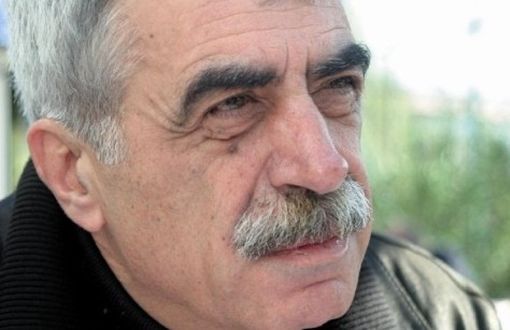Sarp Kuray’s attorneys applied to the Constitutional Court upon the Supreme Court of Appeals 9th Penal Chamber’s approval of life imprisonment for their client.
They submitted their petition to the Constitutional Court on Friday stating the violation of Kuray’s “personal liberty” and “presumption of innocence” and requesting the postponement of the execution.
“The European Court of Human Rights had ruled the trial was unjust as regards the duration and the collection and evaluation of evidence, and such a conviction could not be delivered based on contested witness testimonies,” the petition read, and emphasized that the court had nonetheless followed the same path in the retrial.
The violations of Kuray’s rights were elaborated in the petition as follows:
The postponement of the execution
* Attorneys had requested the postponement of the execution of Kuray’s sentence in the first hearing of the retrial, on January 29, 2013. The court rejected the suspension of the execution “as of the scope of the case.”
* The court did not even rule on the request to hear other defendants in the same bill of indictment, in lieu of the defendants and witnesses not present in the June 25, 2013 hearing. The court rejected the demand for the postponement of the execution in this hearing, giving no justification.
* The court dismissed the demand to postpone the sentence in the hearing on April 2, 2014 on grounds that “the sentence was approved by the Supreme Court of Appeals.”
* Lawyer Cevat Balta previously tried for the same offense and personal acquaintance of Kuray and the case’s other defendant was prepared as a witness in the same hearing, but the court rejected to hear the witness “in light of the justification of the ECHR verdict.”
Witnesses
* Witnesses M.B.Ö. and M.A.B. rejected their previous testimonies, contending that their admission of charges against them had been obtained under torture. S.K. also significantly altered his testimony in the process of the lawsuit. The ECHR stated as well, “there are serious doubts as to the credibility of the witnesses’ prior testimonies.”
* M. Bülent Özbek, a witness cited in the ECHR decision had expressed in his court testimony, “that he had not received orders from Kuray, that he had been made to sign his police testimony in 1990 under torture, without having read it, and that he had dismissed his statements on these grounds since the beginning of the trial.
* The ECHR verdict on Kuray states clearly that the sentence executed on grounds that he did not actionably perform the deeds in the bill of indictment, but gave the “order” relies decisively on the other defendants’ testimonies in the police station, that these testimonies have changed to a great extent in the process of the lawsuit, and most importantly that to deliver such a serious conviction based on contested testimonies would not comply with the European Convention on Human Rights (ECHR).
* However, despite the ECHR ruling, the court delivered the same judgment on the same grounds in the retrial.
The request
The application featured the following request:
“Kuray’s ‘personal liberty’ stipulated in the 19th article of the Constitution, his ‘presumption of innocence’ stipulated in 15th article of the Constitution, ‘equality of arms’ stipulated in the 38th article of the Constitution and clause 6/3-d of the ECHR and ‘right to fair trial’ stipulated in the 36th article of the Constitution have been violated. We request as per standing orders article 73, the preventive postponement of the execution of the applicant with the admission that his continuing incarceration ‘is a serious threat to his material or spiritual integrity.’” (AS/PU)
* Click here for a previous news article on Kuray’s case in English.
* Click here to read the article in Turkish.




